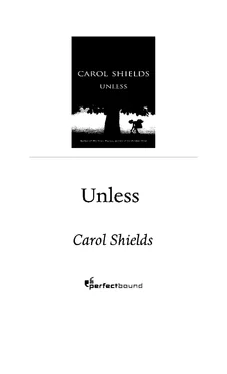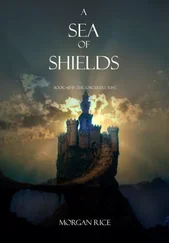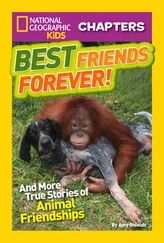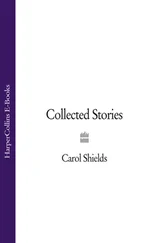Carol Shields - Unless
Здесь есть возможность читать онлайн «Carol Shields - Unless» — ознакомительный отрывок электронной книги совершенно бесплатно, а после прочтения отрывка купить полную версию. В некоторых случаях можно слушать аудио, скачать через торрент в формате fb2 и присутствует краткое содержание. Жанр: Современная проза, на английском языке. Описание произведения, (предисловие) а так же отзывы посетителей доступны на портале библиотеки ЛибКат.
- Название:Unless
- Автор:
- Жанр:
- Год:неизвестен
- ISBN:нет данных
- Рейтинг книги:4 / 5. Голосов: 1
-
Избранное:Добавить в избранное
- Отзывы:
-
Ваша оценка:
- 80
- 1
- 2
- 3
- 4
- 5
Unless: краткое содержание, описание и аннотация
Предлагаем к чтению аннотацию, описание, краткое содержание или предисловие (зависит от того, что написал сам автор книги «Unless»). Если вы не нашли необходимую информацию о книге — напишите в комментариях, мы постараемся отыскать её.
Unless — читать онлайн ознакомительный отрывок
Ниже представлен текст книги, разбитый по страницам. Система сохранения места последней прочитанной страницы, позволяет с удобством читать онлайн бесплатно книгу «Unless», без необходимости каждый раз заново искать на чём Вы остановились. Поставьте закладку, и сможете в любой момент перейти на страницу, на которой закончили чтение.
Интервал:
Закладка:
He wants to honeymoon in Albania, for one thing; he is being most insistent. He’s bought a map. He’s e-mailed his relations in Tirana and discovered that even in this poorest corner of Europe the e-mail network is potent. Alicia finds this honeymoon idea hard to entertain, never mind the marriage itself. Albania sounds like punishment to her. Nevertheless, Roman is wearing her down. They never seem to get around to having a real discussion about their future together. Roman doesn’t yet understand that the marriage is not going to take place.
His nerves are too tender to register the fact. Or else they’re too coarse.
Furthermore, he has fallen out with the bassoonist in the Wychwood Symphony. The bassoonist’s chair is just in front of Roman’s, and she — Sylvia Woodall — complains that the bell of Roman’s trombone is smack in her ear. She also complains that she gets wet when he moistens his slide with his little spray bottle of water, and her hair, which is naturally curly, goes into a witch’s frizz and makes her lose her composure and her sense of where she is in the music. She wants him to move his chair back an inch or two, and Roman refuses.
There’s no room, he maintains. What can he do? Well, Sylvia Woodall says, then you can at least redirect the angle of the spray. I can’t, says Roman, who might easily be accused of possessing an over-groomed sense of entitlement: it’s impossible.
The two lovers, Alicia and Roman, are getting nowhere, and the wedding date is approaching. And I, the director of this comic romance, have reached an end to my thinking.
A narrative apogee is called for at this time, and it slyly evades me. I keep stopping and trying to tease out from the lovers’ quarrels those small illuminations that fit like a plug into a socket, but all I get is anger. I’m beset by a serious post-Christmas énervement. Is there any task as joyless as undecorating a tree? Yes and no. I always wait till the girls go back to school and Tom back to the clinic; they can’t be trusted with the tedium of unhooking fragile ornaments, wrapping them in tissue paper, and putting them back in their designated cartons, and then easing the tree onto its side and dragging it out the big front door, then sweeping up mountains of needles and picking them one by one out of the baseboards. A whole morning of methodical and discouraging labour.
But there; it’s done; I’m glad to have it gone. I welcome this reclaimed space. Now I can think.
I’m trying to reconstruct my phone conversation with Arthur Springer, but only a few particles survive. He said something about a pilgrimage, which makes no sense at all. I imagine now that a twinkling menace overhung the words he uttered. But then the kitchen was particularly noisy the morning he phoned. Natalie and Chris, on Christmas break, had risen late and were making pancakes at the stove, trying to form their initials in pancake batter. They had the radio turned up, a particularly loud rock station. The dishwasher was running. Tom was clumping down the stairs. My heart was beating. It’s a wonder I heard anything at all.
Ever
Natalie and Chris have resumed their Saturday visits to Bathurst and Bloor, and just before Christmas they took Norah an immense Christmas bundle, lovely things, all of them beautifully wrapped, a soft blue tracksuit with thermal lining, perfumed soap, a brush and comb, a stocking full of fruit and chocolate. Our collective guess is that she gave all these things away, immediately, to strangers, but we can accept that, we have to accept it since we can’t stop thinking about it.
What I’d like is a lobotomy, a clean job, the top of my head neatly sawn off and designated contents removed. I’d get rid of that week last spring when we didn’t know where Norah was.
I’d extract the blood pouring out of Natalie’s forehead that time years ago when her high chair tipped over in the garden and hit the fence. All body wounds, in fact, would go, including the scabs I saw on Norah’s wrists last week, that half inch between her mittens and her coat sleeve, a ring of red sores. I’d take out the whole soundtrack of My Fair Lady and the memory of my mother painting china after she had to be put in the care facility because she couldn’t cope, couldn’t even remember her own name after my father died. Also that time I started menstruating on the train to Ottawa; naturally I was wearing my new white pantsuit. And that bout of cystitis Chris had when we were in France, when for five whole minutes I couldn’t remember the word for bladder ( vessie, noun, feminine). And that fight Tom and I got into on the third anniversary of our meeting in Nathan Phillips Square, over what I can’t remember, when each of us said too much and too cruelly. Neither of us would dare go back to that moment when we came close to tearing each other apart, so that for days afterwards we trembled and whispered and hung on to each other all night long.
Tom was puzzled when I described the red scabbiness of Norah’s wrists. Chilblains, he guessed, that odd, almost Dicken-sian ailment brought on by exposure to fierce weather.
“You don’t think she could have taken a razor and —”
“No.” Shaking his head. “You said it was more like a rash.”
He had a look himself on Friday when he was in Toronto and now he isn’t sure — but he had hesitated about getting too close to her as she paced back and forth on her corner. He didn’t want her to think he was peering. Severe eczema occurred to him, and he left a jar of cortisone cream next to the square of cardboard she occupies, and, from Honest Ed’s, a huge pair of sheepskin gloves that will come up to her elbows if she has the sense to put them on.
What a guessing game we play with this child of ours. She has not had such intense parenting since she was an infant, but this time round all our efforts are based on conjecture.
There are dance anthropologists — Annette Harris told me about this phenomenon — who attempt to reconstruct the lost ballets of Nijinsky, relying on scraps of music, reviews, the temper of the times at the beginning of the twentieth century, and half a dozen rough choreographic notes scribbled in the margin of a diary. This has to be heartbreaking work, doomed to failure, yet the exercise is very like what Tom and I do when we confer about Norah: her health, her sanity, the rash on her wrists, her nutrition, the glaze coating her dull eyes, what her sisters report, and what it is that passes through her brain as she walks to her corner every morning and then back to the shelter at night. And why?
Tom has come to believe she is suffering post-traumatic shock. The problem, he says, is identifying the trauma and making it visible. A brutal visibility, but authentication can transform the event from an ever-repeating reality to mere memory, which the brain can accommodate. He has all but deserted his trilobites for his current research on stress and trauma. He sits hunched over his computer in the evenings, deep into the Internet, webbing off darkly into trauma therapy, trauma stress, trauma case histories. In our bedroom we have a stack of books and journals on the subject.
Well, he is a doctor. The idea of diagnosis and healing comes naturally to him, a rhythmic arc of cause and effect that has its own built-in satisfactions, and how enviable, to me, this state of mind is. So simple, so clean. I wish now that I had made Roman a doctor rather than a trombonist, but it’s too late. I can’t see him without that flash of brass in his arms and his mouth pumping away, and besides, he was a trombonist in the previous novel and I can’t arbitrarily send him off for four years of medical school, never mind pre-med and a disposition that begins at birth.
Читать дальшеИнтервал:
Закладка:
Похожие книги на «Unless»
Представляем Вашему вниманию похожие книги на «Unless» списком для выбора. Мы отобрали схожую по названию и смыслу литературу в надежде предоставить читателям больше вариантов отыскать новые, интересные, ещё непрочитанные произведения.
Обсуждение, отзывы о книге «Unless» и просто собственные мнения читателей. Оставьте ваши комментарии, напишите, что Вы думаете о произведении, его смысле или главных героях. Укажите что конкретно понравилось, а что нет, и почему Вы так считаете.












